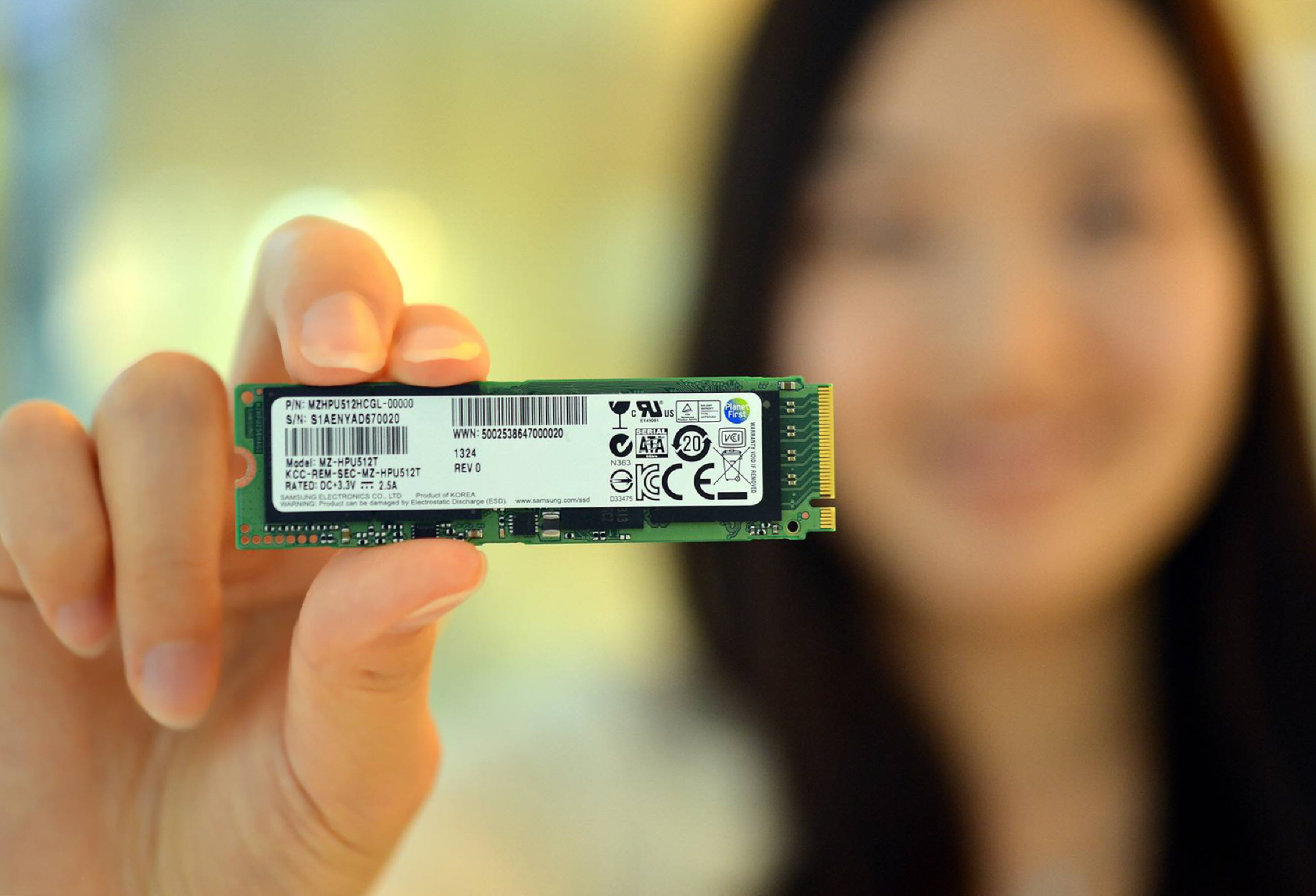Samsung Starts Production of PCIe SSDs for Ultrabooks
Samsung has started mass producing its XP941 SSDs, the industry's first PCIe based SSDs for Ultrabooks.
Samsung has announced that it has started mass producing the industry's first PCIe-based SSDs intended to be used in Ultrabooks. The SSDs, known as the Samsung XP941's, are some very high performance SSDs. They can go well past the limits of the common SATA3 interface.
The units feature sequential read speeds of up to 1400 MB/s -- nothing faster is possible over the PCIe 2.0 interface found in Ultrabooks. Hopefully, it won't be long until we get PCIe 3.0 versions, which should offer double the bandwidth, allowing for speeds up to 2800 MB/s.
"With the Samsung XP941, we have become the first to provide the highest performance PCIe SSD to global PC makers so that they can launch leading-edge ultra-slim notebook PCs this year," said Young-Hyun Jun, executive VP, memory sales & marketing, Samsung Electronics. "Samsung plans to continue timely delivery of the most advanced PCIe SSD solutions with higher density and performance, and support global IT companies providing an extremely robust computing environment to consumers."
The XP941 SSDs come in the M.2 form factor of 80 by 22 mm. They also weigh just six grams.
Units have already been shipped to a number of the major Ultrabook manufacturers, and the drives will come in capacities ranging from 128 GB to 512 GB. There has been no word on whether the units will be available through the retail channels or what they would cost.
Why is nobody building an affordable PCIe-based SSD for desktops yet?
Get Tom's Hardware's best news and in-depth reviews, straight to your inbox.
Niels Broekhuijsen is a Contributing Writer for Tom's Hardware US. He reviews cases, water cooling and pc builds.
-
merloin "Why is nobody building an affordable PCIe-based SSD for desktops yet?"Reply
Good question indeed. -
merloin "Why is nobody building an affordable PCIe-based SSD for desktops yet?"Reply
Good question indeed. -
tofooey "Why is nobody building an affordable PCIe-based SSD for desktops yet?"Reply
Probably because there is more money in OEM products that niche consumer products. They're coming, just not first. -
MrTwisted6 Interestingly enough is that some ASUS motherboards have the connection for this already...so maybe sooner than we think?Reply -
Patrick Tobin I think I'd rather have an adapter or the connection directly on the board. Some already have it. Who cares if the parts are made for a notebook? We use 2.5" SSD's :PReply -
busuan "Why is nobody building an affordable PCIe-based SSD for desktops yet?"Reply
The PC form factors need a revolution badly, yet nobody dares to challenge the establishment. Motherboard, RAM sticks, plug-in cards, hard drives and a case... It's high time to throw these old concepts into trash. -
mynith Can you put these into an existing laptop instead of the wireless card, and have a USB dongle? That'd be cool.Reply -
zodiacfml PCIe based SSD? It's because the added performance will not be felt by the user. This is product of Samsung works well for devices though so that makers are not limited by the form factor of the standard SSD.Reply -
truerock The way I read this article is that SATA Express is a short term hack to support the obsolete SATA form factors. SATA will be relegated to supporting optical drives. The form factor pictured at the top of this article is the future for permanent storage.Reply -
truerock Oh, I should comment... and this is fascinating... I recently purchased a 32 GB SanDisk Extreme USB 3.0 memory stick. When I inserted it into a USB 3.0 port on my desktop PC, it showed up in Windows 7 as a SSD... not removable storage. SanDisk had put a SSD controller on the memory stick!Reply
In my opinion, all permanent storage is going to start by-passing these various and unnecessary layers of I/O controllers.

